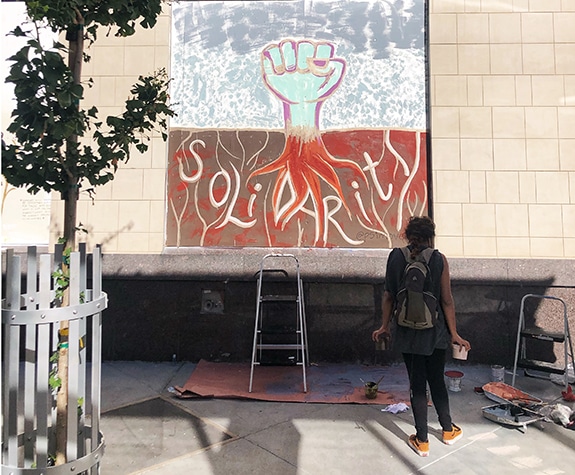EMOTIONS ARE RUNNING HIGH WITH THE RECENT UPRISINGS in our society and glaring spotlight on social injustice and systemic racism in our country. Taking the time to feel all the feelings presenting themselves with this movement are essential to honor, acknowledge, and transform into action. Everyone deserves the same opportunities and freedoms as a human being, and anything that diminishes the fundamental right of any person based on skin color is an act of violence through oppression and racism. Each of us plays a role in creating unity and harmony in society. This will only happen by engaging in conversations, however difficult, around policy injustices built into our government systems. The violence and brutality we see is not the way.
The Human Genome Project
In the Human Genome Project from the 1990s and completed in early 2000, we thought that mapping the human genome would unlock the key to disease, discover which genes were at the root cause, and maybe even draw a map on how to turn genes on and off. As a result of this endeavor, a discovery resulted: Every human is 99.9% identical in terms of DNA, announced at the White House on June 26, 2000.
Another article from Harvard’s DASH called Race and Genetics: Attempts to Define the Relationship addresses two main topics in this realm.
- It reviews what Francis Collins, the head of the publicly funded project, describes as “the ‘vigorous debate’ on the relationship between race and genetics in the open-access special issue of Nature Genetics entitled ‘Genetics for the Human Race’ in 2004.”
- It then explores the most troubling issue in the debate: “many geneticists today work with the assumption that human biology differs by race as it’s conceived through American census categories. It then presents interviews with researchers in two collaborating US laboratories who collect and organize DNA by American notions of ‘race/ethnicity’ and assume that US race categories of classification largely traduce human biogenetic difference.”
Yet again, another Harvard Magazine article, Duana Fullwiley, who has studied the ethical, legal, and social implications of the human genome project, asks the critical question, “Is race, then, purely a social construct? The fact that racial categories change from one society to another might suggest it is.”
For example, in federally funded scientific research and popular services like ancestry testing, claims are made to prove membership in a particular race, group, or tribe and genetic testing. This appears to give scientific credit to the idea that racial categories have a biological basis. According to Fulwiley, “There is no genetic basis for race.”
Human Connectedness
In February, Spencer Wells, Ph.D. ’94, came to Harvard to tell a story of human connectedness. When the question was raised about race, Wells’s response was crystal clear. “Racism is not only socially divisive but also scientifically incorrect.” We are all descendants of people who lived in Africa recently,” he says. “We are all Africans under the skin.” The kinds of differences people notice, such as skin pigmentation, limb length, or other adaptations, are “basically surface features that have been selected for in the environment. When you peer beneath the surface at the underlying level of genetic variation, we are all much more similar than we appear to be. There are no clear, sharp delineations.”
As we move through these sad, tragic, painful, and messy times, we can better educate ourselves to understand the root of the issues. Positive change is inevitable in making efforts to do all possible to listen, learn, support, and uplift one another. No matter how long this road might be, I stand committed to justice and respect for humanity in full solidarity.



